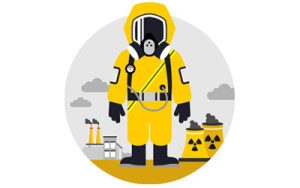 Unfortunately, co-workers and colleagues that could be hazardous do not come with a warning label. For example, maybe it would have helped if you knew excessive lunch with William could lead to decreased performance, poor evaluations, and possible termination. In the workforce, there may be many people who are difficult to work with and potentially toxic.
Unfortunately, co-workers and colleagues that could be hazardous do not come with a warning label. For example, maybe it would have helped if you knew excessive lunch with William could lead to decreased performance, poor evaluations, and possible termination. In the workforce, there may be many people who are difficult to work with and potentially toxic.
The following are several warning signs of toxic people, how you should manage them and who to avoid.
- The Depressed Complainer: The depressed complainer can be identified by always discussing grievances about work. The depressed complainer may chronically complain about job issues regardless of where they are. Initially, their openness to complain may draw you into the relationship and lead you to believe you have a confidant. However, venting endlessly about negative work issues that cannot be changed leads to more negatively and decreased production. If you join in negative talk with the depressed complainer other colleagues may notice your dissatisfaction and be repelled by you. If complaining continues it won’t be long before your supervisor or boss becomes aware, which could be drastic. To manage a depressed complainer, try to avoid them. This often can be done simply by not complaining. If you cannot avoid them be friendly and cordial, but keep the conversation light.
-
Egocentric Opportunist: These individuals can be very charming, humorous and attractive. They may compliment you and make you glow at times with their wit and clever insight. However, you may learn to find that overall they are superficial and use relationships as pawns to obtain what they desire. This can be dangerous as they may betray you if it fits their immediate needs. For example, they may take credit for someone else’s idea or use privileged information to promote their own cause. They can be spotted by excessive friendliness that feels disproportionate to the relationship. Additionally, subtle name-dropping or consistent comments highlighting their achievements are telltale signs.
Keep in mind that any information you give or provide to them is unlikely to be held in confidence. Do not tell them anything that they could use against you. To manage the opportunist keep communication with them via email. This way you can document comments and protect yourself if they attempt to spread erroneous information. If you have to communicate with them keep dialogue very factual and precise to minimize distortion.
- Passive Aggressor: These individuals have anxiety about communicating anger or conflict directly. Consequently their anger comes out in an indirect fashion. They can, on the surface appear very agreeable and compliant saying yes, “no problem,” then flake out. They may “forget” to do important aspects of a project leaving you in a lurch. They may withhold information that may interfere with your capacity to function adequately. Try not to put yourself in a position where you have to solely rely on them for a project. Anticipate their tendency to withhold and plan ahead to cover potential gaps. Additionally, be extremely specific when communicating with a passive aggressor to enforce accountability.
